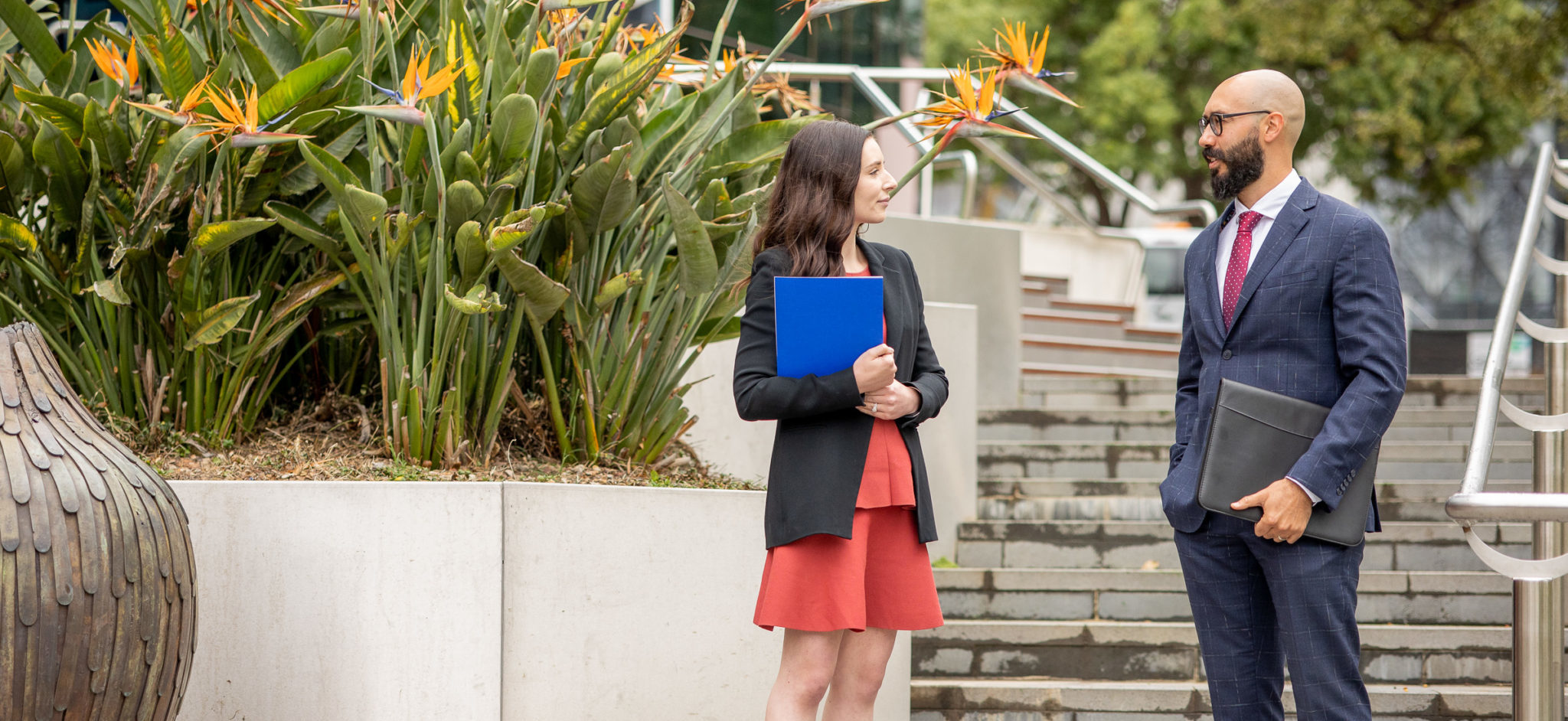Executor’s Duties
Executors are personally responsible for the proper administration of the estate. Some of the core responsibilities of an executor include:
- Locating the original will
- Gathering the real and personal assets
- Provide the Supreme Court with an inventory of all of the deceased’s assets comprising the estate
- Keeping the assets of the estate safe, securing property and valuables
- Pay all outstanding liabilities and estate debts
- Upon death, notify all interested parties and beneficiaries
- Prepare and advise total costs involved in administration to the court
- Apply for Letters of Administration or a Grant of Probate
- Prepare the final income tax returns of the deceased estate
- Distribute the assets as per the deceased’s will
- Administration of the estate
In addition to the above core responsibilities, an executor may be required to defend a Will from being challenged.
Once legal proceedings have commenced, it is the responsibility of an executor to answer the claim and seek legal advice. It can be stressful and challenging for an executor, and it is vital to understand your duties and obligations.
Validity of the Will – is the Will actually valid?
A dispute can occur when a person disputes the validity of the Will. A Will may be considered invalid where it fails to meet the necessary legal requirements, for example, not being signed correctly.
Validity may also be queried if:
- The deceased suffered from substance addiction, frailty or illness;
- The deceased had a sudden change in personality, habits or relationships;
- The deceased suffered from a condition which would have made signing their Will impracticable or impossible but the document still bears their ‘signature’;
- An Executor or major beneficiary named in the Will acted as translator for a deceased who had limited English skills; and/or
- The Will was only witnessed by people named in the Will (Executor or beneficiary).
There are 3 common grounds to challenge the validity of the Will:
1. Lack of Testamentary Capacity
A person making a Will must have ‘testamentary capacity’ at the time of making and signing their Will, in order for that Will to be deemed valid.
A person will be deemed to have testamentary capacity if they:
- Understand the nature and importance of a Will;
- Understand the nature and value of their assets;
- Understand the effect of disposing of their assets in their Will;
- Recognise there are people who may have a claim against their estate or an entitlement to provision;
- Can balance and weigh-up those potential claims; and
- Were not suffering from impairment (i.e. delusions, hallucinations, dementia) which would have affected their capacity.
If a person did not possess testamentary capacity when they executed their Will, their Will shall be deemed invalid. In these circumstances, their most recent previous Will shall be relied upon, but if they did not have a prior Will, the intestacy provisions will apply.
2. Undue Influence
A person must not be unduly influenced or placed under duress to prepare and sign their Will. If there is evidence a deceased was influenced or placed under duress, and they resultantly executed a Will contrary to their wishes, the Will shall be deemed invalid. Importantly, the Court will require strong evidence to be satisfied of undue influence.
3. Suspicious Circumstances
The validity of a Will can be called into question if there was a significant change made to the Will shortly prior to the deceased’s death. For example:
- A beneficiary suddenly receiving substantially more provision;
- A new beneficiary, not previously mentioned in a Will or who had only recently entered the deceased’s life, added to the Will as a major beneficiary; or
- A major beneficiary was instrumental in preparing the most recent Will.

What our clients have to say
Frequently asked questions about defending a will
The steps for challenging the validity of a Will varies depending on how far the estate administration has progressed:
- If Probate of the Will has not been granted, you can file a Caveat to temporarily prevent Probate being granted, then take action to prove the invalidity of the Will; or
- If Probate of the Will has been granted, you can commence civil proceedings in relation to the Probate proceeding.
If the Court makes a finding that the Will is invalid, the deceased’s prior Will may then be deemed to be their final Will.
If the deceased did not have a prior Will, the laws of intestacy shall apply instead of the Will.
An executor of a Will or the Estate’s Lawyer, may receive a caveat or be served with an Originating Motion from the person contesting the Will.
A caveat is a statutory injunction that prevents the issue of a Grant of Probate or Letters of Administration and a formal notification that another party has an interest in the estate. Administration of the estate is not possible whilst there is a caveat.
To successfully defend a challenge to a Will, the executor may need to provide evidence to the court, including but not limited to, medical records, bank statements, hospital reports, affidavit material supporting their position.
Being an executor and defending a contested will can be extremely stressful and complicated, particularly if the executor is a deceased’s family member or trusted friend. The executor defending a Will should seek legal advice early.
Another, more common claim against a Will is a family provision claim.
When making a Will, the Will maker has an obligation to make provision for eligible persons, such as their spouse and children. Where a person has been left out of a Will or not adequately provided for in the Will, that person can seek further provision from the estate. These proceedings are commonly known as Part IV proceedings as they are made pursuant to Part IV of the Administration and Probate Act (1958).
The role of the executor is to defend the Will to ensure the assets are distributed as per the wishes of the deceased.
An eligible person to contest a Will is:
- A spouse or domestic partner of the deceased;
- A child (including adopted child and stepchild) of the deceased;
- A former spouse or domestic partner who would have been eligible to commence family law proceedings against the deceased; and
- A member of the deceased’s household at the time of their death.
In addition to being an eligible person, the claimant must prove the following:
- That they have a financial need;
- That the deceased had a moral obligation to provide for them; and
- What they did provide (if anything) was insufficient.
There are a number of further factors which are considered, such as:
- Any documents the deceased left detailing their reasons;
- The nature of the claimant’s relationship with the deceased;
- The moral or financial obligations the deceased had to the claimant and other beneficiaries (if any);
- The claimant’s financial resources, and the financial resources of other beneficiaries;
- The size and nature of the Estate;
- How the Will or laws of intestacy fail to make adequate provision for the claimant;
- The claimant’s age, and the age of other beneficiaries;
- Any health conditions the claimant, or other beneficiaries, have been diagnosed with;
- Financial support provided by the deceased to the claimant, or received by the deceased from the claimant, during their lifetime;
- Whether or not there is another person/s who owes the claimant an obligation to provide for them in their Will;
- The impact any change to the Will would have on the other beneficiaries; and
- The claimant’s character and conduct during the proceedings.
If the claim cannot be resolved by way of informal negotiations and a claim is filed in Court against the estate, the Court will set out a timetable for the matter, including deadlines for:
- Filing evidence – usually in the form of an Affidavit or Position Paper which details your claim in specific detail.
- Mediation – where all parties come through in an effort to resolve the matter. Most claims are resolved at this stage.
- Trial (if necessary) – where the claim is heard and determined by the Court.
- Once the claim is resolved or determined, the administration of the estate will be finalised in accordance with the Terms of Settlement (agreed at mediation) or Court Orders (made by the Court after Trial).
When defending a contested will, the timing can play a pivotal role.
Each state in Australia has its own legislation and time frames vary depending on the deceased’s state.
In Victoria, applications must be made within six months after the date on which Probate is granted. If the dispute has not been lodged within the prescribed time limit, it may not be approved, especially if the estate has already been distributed to the beneficiaries.
Defending a will can be an extremely complex and lengthy exercise, and depending on the complexity of the case and the number of challenges against the will, the time frame can vary. If the dispute can be settled through dispute resolution without going to court, the case will be finalised a lot faster. If the matter is to be decided in court, many factors could affect the time frame, and settlements can take anywhere between 6-24 months.
Estate lawyers specialise in defending contested wills and can offer professional legal advice.
In most cases, the deceased’s estate will pay the legal costs.
Executors are not personally responsible for any costs during the legal process unless they incur unreasonable legal expenses. The legal fees can vary depending on how complex the case, in which state of Australia the claim is lodged and how willing parties are to negotiate out of court.
If a court determines that one party is failing to participate in dispute resolution, or is unnecessarily delaying proceedings, then the court may order them to pay for the legal costs.
Court proceedings can be costly, and settling out of court is preferred.
When defending a will contest, lawyers can help settle a claim before it reaches the final hearing in the Supreme Court. This can be obtained by both parties participating in a dispute resolution negotiation or mediation session to resolve their conflicts independently and reach a mutually agreeable outcome.
The executor defending a will should seek legal advice from estate lawyers to help them effectively administer the estate and legally uphold the will’s provisions.
Coulter Legal offers practical assistance in handling contested will claims, ensuring the wishes of your loved one are respected.
Emotions might run high and complications can develop when someone contests a will. Our qualified lawyers are by your side, guiding you through the legal procedure with their in-depth understanding of estate law whilst providing practical and pragmatic advice. We take great care to build solid defences that preserve the validity of the will because we recognise how important it is to defend the testator’s wishes.







